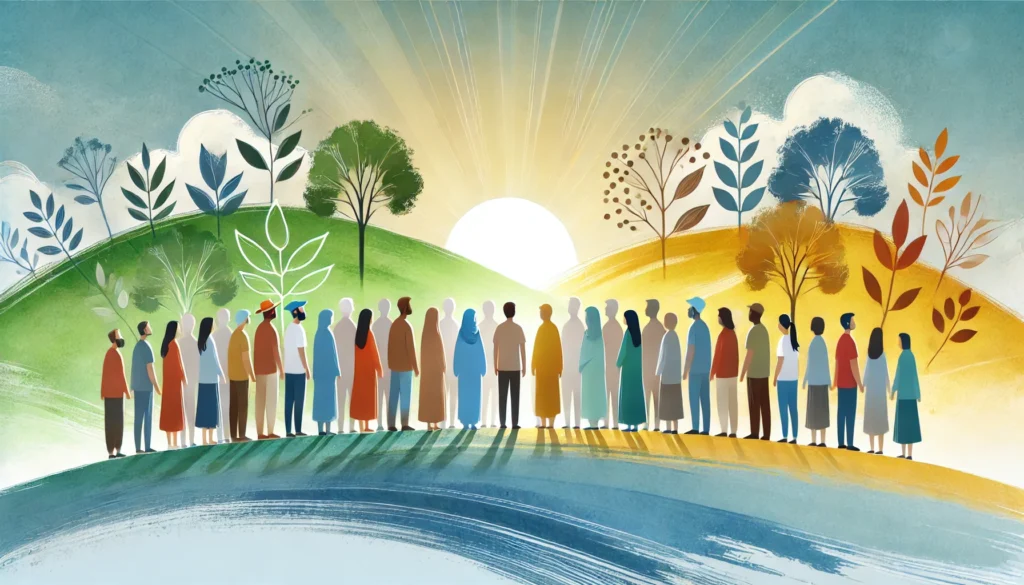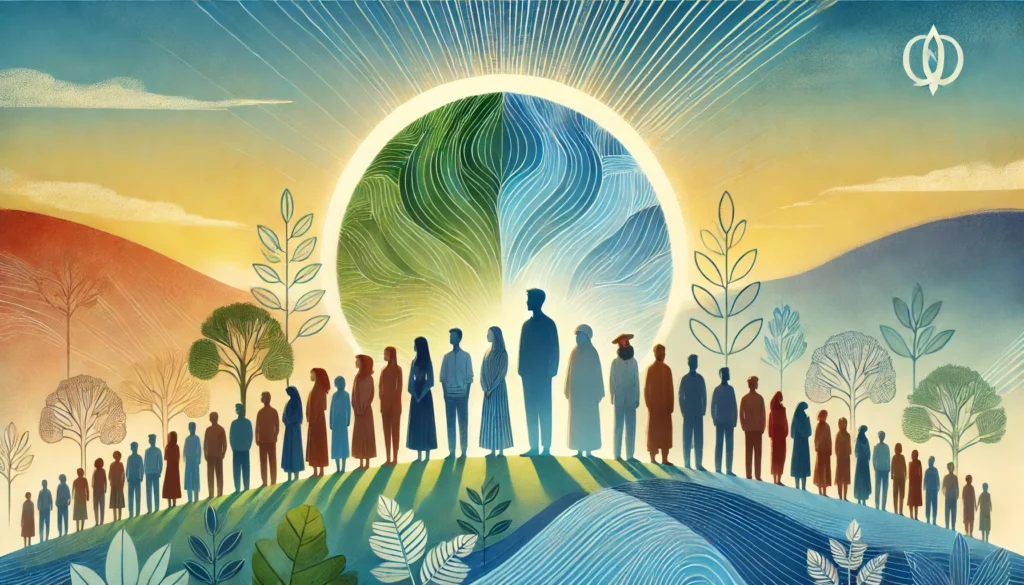Bahai Racism Nationalism Communism: A Comprehensive Guide

Introduction
The Bahá’í Faith is a global religion founded in the 19th century, emphasizing the spiritual and social unity of all humankind. Its principles offer profound insights into contemporary issues like racism, nationalism, and communism, which continue to influence societies worldwide. This guide delves into the Bahá’í perspectives on these ideologies, highlighting their implications and the solutions proposed to foster global peace and unity. By examining these topics in depth, we aim to provide an authoritative and informative resource.
Bahá’í Teachings on Unity and Diversity
Oneness of Humanity
At the heart of the Bahá’í teachings is the principle of the oneness of humanity. Bahá’u’lláh, the founder of the Faith, proclaimed that all humans are created equal and must be treated with dignity and respect. This foundational belief rejects any form of discrimination based on race, ethnicity, or nationality.
“The earth is but one country, and mankind its citizens.” — Bahá’u’lláh
This vision calls for an end to divisions and advocates for a unified global society.
Unity in Diversity
The Bahá’í Faith values cultural and individual differences as essential elements of a harmonious world. By embracing diversity, societies can foster creativity, mutual respect, and cooperation. This approach aligns with the goal of eradicating prejudice and building a world where diversity is celebrated.
Racism: A Bahá’í Perspective
Condemnation of Racial Prejudice
The Bahá’í writings categorically condemn racism as a destructive force that undermines societal harmony. Abdu’l-Bahá, the son of Bahá’u’lláh, described racial prejudice as a cause of strife and suffering. Racism not only creates divisions but also perpetuates inequalities that hinder progress.
Promoting Racial Unity
To combat racism, the Bahá’í community engages in grassroots initiatives aimed at fostering unity. These efforts include educational programs, community dialogues, and interfaith collaborations. By encouraging individuals to recognize their shared humanity, these activities aim to dismantle systemic racism and promote equity.
Table: Actions to Promote Racial Unity in the Bahá’í Community
| Action | Purpose | Example |
|---|---|---|
| Education on Unity | Raise awareness of racial equality | Diversity workshops |
| Community Service Projects | Build relationships across racial lines | Neighborhood clean-ups |
| Interfaith Dialogues | Foster mutual understanding | Faith-based conferences |
Nationalism: Bahá’í Views on Global Citizenship
Critique of Extreme Nationalism
While patriotism can inspire love for one’s country, extreme nationalism—which prioritizes national interests over global well-being—is seen as a barrier to unity. The Bahá’í Faith warns against forms of nationalism that foster division, conflict, and superiority.
Advocacy for World Federation
The Bahá’í teachings advocate for a system of global governance to address issues like war, environmental crises, and economic disparities. This vision includes a world parliament and a unified legal framework that ensures justice for all nations.
Communism: Analysis from a Bahá’í Perspective
Criticism of Materialistic Ideologies
Communism, with its focus on material equality and state control, is critiqued in the Bahá’í writings for neglecting spiritual dimensions of life. The suppression of religion and individual freedoms under communist regimes contradicts the Faith’s emphasis on spiritual and personal growth.
Alternative Economic Principles
The Bahá’í Faith proposes a balanced approach to economics, advocating for the elimination of extremes of wealth and poverty. This involves voluntary sharing, ethical business practices, and community consultation to address inequalities without resorting to coercion.
List: Key Economic Principles in the Bahá’í Faith
- Justice as the foundation of economic systems.
- Wealth redistribution through spiritual and voluntary means.
- Encouragement of meaningful work for all.
- Community-based decision-making processes.
Comparative Analysis: Bahá’í Faith vs. Ideologies
| Aspect | Bahá’í Faith | Racism | Nationalism | Communism |
|---|---|---|---|---|
| Core Value | Oneness of humanity | Racial superiority | National superiority | Material equality |
| Approach | Unity and diversity | Division and hierarchy | Exclusion and conflict | State control |
| Outcome Desired | Global harmony | Segregation | Fragmentation | Suppression of freedoms |
Practical Applications
The Bahá’í principles are not just theoretical but offer practical solutions for contemporary challenges:
- Education: Teaching the oneness of humanity in schools.
- Community Action: Organizing events to celebrate diversity.
- Global Collaboration: Supporting international treaties that promote unity and justice.
Conclusion On Bahai Racism Nationalism Communism
The Bahá’í Faith provides a holistic perspective on addressing racism, nationalism, and communism by emphasizing spiritual principles and practical solutions. Its teachings inspire individuals and communities to work towards a world where unity, justice, and equality prevail. By understanding and implementing these principles, humanity can overcome divisions and build a brighter future.
FAQs About Bahai Racism Nationalism Communism
What does the Bahá’í Faith say about capitalism?
The Faith critiques extremes of wealth and poverty, promoting a balanced approach that includes ethical capitalism with spiritual values.
How does the Bahá’í community address systemic racism?
Through grassroots initiatives, educational programs, and fostering interfaith dialogues to promote equity and understanding.
Are Bahá’ís involved in political movements?
Bahá’ís do not engage in partisan politics but actively support efforts aligned with their principles of unity and justice.
How do Bahá’í teachings influence economic policies?
They advocate for community consultation, wealth redistribution, and the ethical treatment of workers.
What role does religion play in the Bahá’í approach to governance?
Religion is seen as a unifying force that complements governance by fostering moral and ethical leadership.
Additional FAQs On Bahai Racism Nationalism Communism:
How do the Bahá’í teachings address the roots of prejudice and discrimination?
The Bahá’í Faith emphasizes education and the transformation of individuals’ hearts and minds as essential steps to eliminate prejudice. It advocates for a universal recognition of the spiritual equality of all people, alongside societal reforms to address structural inequalities.
Why does the Bahá’í Faith consider nationalism a barrier to world peace?
Nationalism, when taken to extremes, promotes division and prioritizes one nation’s interests over the common good. The Bahá’í Faith advocates for global citizenship, encouraging individuals to see themselves as part of a unified human family rather than being confined by national borders.
What role do Bahá’ís play in interfaith initiatives to combat racism?
Bahá’ís actively participate in interfaith initiatives by organizing dialogues, workshops, and community projects that promote racial unity. These efforts help bridge divides among different religious and cultural groups, fostering collaboration and understanding.
How does the Bahá’í vision for global governance address economic inequalities?
The Bahá’í Faith envisions a global system of governance that ensures economic justice by establishing mechanisms for fair resource distribution, ethical trade practices, and international collaboration. It seeks to reduce disparities through collective decision-making and consultation.
Are there historical examples of Bahá’í contributions to resolving racial or national conflicts?
Yes, the Bahá’í community has been actively involved in racial reconciliation efforts, such as supporting the Civil Rights Movement in the United States and organizing unity conferences worldwide. These initiatives demonstrate the Faith’s commitment to fostering peace and understanding among diverse groups.
Recommended Articles:
Has Anyone Tried Returning a Fake Trijicon SRO? Complete Guide
Does Lakeview Sportswear Company Make M65 Field Jackets?
Discover Kosekiya Reddit Ginzan Onsen: Guide to Japan’s Tranquil Retreat
DSL Halmilla: A Comprehensive Guide to the Versatile Wood
Bahai Racism Nationalism Communism: A Comprehensive Guide







